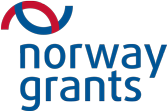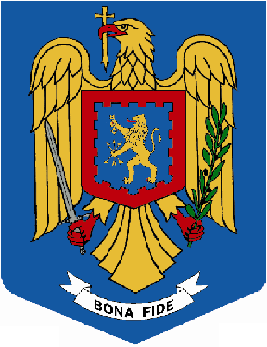Norway Grants
INTRODUCTORY ELEMENTS
The Norway Grants are grant schemes, financed by the Kingdom of Norway. As for general objectives, the Norwegian Grants are aiming to reduce the social and economic disparities in the European Economic Area, respectively the strengthening of the bilateral relations between Norway and the beneficiary states. Norway Grants are also known as "The Norwegian Financial Mechanism."
Successive enlargements of the European Union in 2004 and 2007 meant an increase of approximately 20% of the EU population, but only a 5% increase of the European Gross Domestic Product. Although there have been important improvements, both during the pre-accession and post-accession periods of the new coming states, significant differences on economic development and living standards still persist between the EU countries. Thus, through its financial contribution, Norway supports the reductions of disparities, as the funds are being directed towards the specific needs of the beneficiary countries, while keeping into account the general European objectives.
Although Norway is not a member of European Union, together with the other European Free Trade Association (EFTA – Switzerland, Iceland, Liechtenstein and Norway) members, it is closely linked to the European values and is likewise responsible for promoting equality, tolerance, security, environmental quality and sustainability, and supports the objective of a decent standard of living for all European citizens. It should be noted that the EFTA countries belong to the European Economic Area and have concluded bilateral agreements with the European Union, including agreements on the financial contributions of these states through non-reimbursable assistance schemes, granted to Member States where economic development levels are lower. Norway is the main contributor to the EEA Grants (almost 96% of the total EAA allocation, which for the 2009-2014 programming period represent 951.3 million EUR), and is sole funder of Norway Grants, in the amount of approximately €804 million for the same 2009-2014 period, which means a total of 1.755 billion EUR over a of five years period. The EEA and Norwegian grant schemes started back in 1994, based on the EEA–EU Agreement, with five-year programming periods.
The distribution of the budget of each beneficiary state was calculated depending on the population and Gross Domestic Product per capita, so that the largest sums were directed to Poland and to Romania, followed by Hungary and the Czech Republic.
A priority for Norway Grants is the strengthening of the bilateral relations between Norway and the beneficiary states. Thus, all programs funded by the Norway Grants must include initiatives of mutual interest and projects to converge toward achieving this goal, by allocating funding to each program in this regard. Strengthening of bilateral relations generates mutual benefits for institutions and organizations, both in the beneficiary countries and the donor state.
SHORT HISTORY OF THE NORWAY GRANTS
The EEA was established back in 1994, when the EEA Agreement between the European Union and three member states of the European Free Trade Association (EFTA) - Iceland, Liechtenstein and Norway – entered into force. That led to the creation of a single internal market, governed by the concept of the four freedoms: the movement of goods, services, capital and people. Switzerland did not join the EEA, but it also concluded a bilateral agreement with the EU in this regard. In the single market, citizens and economic operators have equal rights and obligations.
The EEA Agreement states that when a country becomes a member of the European Union, it shall apply to become party to the EEA Agreement (Article 128), thus leading to an enlargement of the EEA.
With the advent of the EEA, non-refundable grants known as the "EEA Financial Mechanism" (or EEA Grants) and the "Norwegian Financial Mechanism" (or Norway Grants) have been implemented. The programming periods are of 5 years, and with the expansion of the European Union and the increasing number of recipient countries, the allocations have substantially successively increased.
The Financing Periods
Five-year funding schemes by the EFTA States have been in place since 1994. So, since 1994 we can mention five such cycles, with funds provided by the three EFTA countries, as follows:
- The Financial Mechanism 1994-1998, targeted Greece, Ireland, Northern Ireland, Portugal and Spain for projects regarding the environmental protection, the education and training and the transport, and received an allocation of 500 million EUR;
- The Financial Instrument 1999-2003 was quite similar to its predecessor, with the same both beneficiary countries and financing sectors addressed. Greece, Ireland, Northern Ireland, Portugal and Spain received 119.6 million EUR in support. Projects were on environmental protection (about 93% of the funding), urban renewal, pollution in urban areas, protection of cultural heritage, transport, education, and academic research;
- The EEA Grants and the Norway Grants 2004-2009 were established in connection with the enlargement of the European Union from 2004. Ten new member states joined not only the EU, but also the European Economic Area (EEA). With the accession of Bulgaria and Romania to the European Union, an additional enlargement of the EEA and Norway Grants was necessary in 2007, so that the allocation in this five-year period amounted to 1.3 billion EUR;
- The EEA Grants and the Norway Grants 2009-2014 provides funding to 16 beneficiary countries in total value of to 1.798 billion EUR. To ensure a more strategic and sustainable impact, the grantsţ management method has been modified, so that the management is now channeled through multi-annual programmes, and the National Focal Points play a decisive role in funds management, at national level.
PROGRAMMES AND PROJECTS
Through the Norwegian Grants for 2009-2014 period, 61 programs are funded, which are implemented in the 13 countries that joined the European Union in 2004, 2007 and 2013. The total amount granted for the reference period is 804 million EUR, and the allocation for Romania is 115.2 million EUR, which ranks Romania in the second place in terms of budget size, after Poland.
The key institutions that are responsible for the Grants implementation are the following:
The Norwegian Ministry of Foreign Affairs (NMFA) is the decision-making body regarding the operation of the financial mechanism.
- The Financial Mechanism Office (FMO) is the Brussels-based secretariat for the Grants. The FMO is affiliated to the European Free Trade Association (EFTA), and serves also as a contact point for the beneficiary countries, and reports to the Norwegian Ministry of Foreign Affairs;
- The National Contact Points (NCPs) are public entities in the beneficiary countries, generally represented by ministries or public agencies specialized in the management of EU funds. They are responsible for achieving the overall objectives of the grant mechanism, exercising overall powers of control for all national programmes. The Focal Points represent the beneficiary state in its relations with the FMO and the NMFA, regarding the Grants. In Romania, this role is played by the Ministry of European Funds;
- The Programme Operators (POs) are authorities of the beneficiary countries, usually public institutions, which are responsible for the management of each national programme. Among its attributes, the POs are responsible for providing national funding contributions to the projects according to the agreed criteria and the monitoring of their implementation;
- The Norwegian embassies in the beneficiary countries are part of the dialogue between the donor and beneficiary states. Embassies play an important role in the communication, but do not administer funds.
A feature of the Norwegian fund is the fact that the fund management responsibility is an attribute of the beneficiary states. This is carried out in each beneficiary state through the National Contact Point, which has the overall responsibility of the implementation of all the Programmes, and Operators Programmes, which are responsible for the management of each particular programme. The OPs, between other specific responsibilities, have to ensure the availability of the funding to the project promoters or to the applicants, organize the calls for proposals, appraise the applications, select and monitor the projects.
FUNDING AREAS
The beneficiary States agree with the donor a set of programmes, tailored to the specific needs of the beneficiary, but included in the EU's overall prerequisites. All programmes must be designed to comply with both European values and standards of human rights, good governance, sustainable development and gender equality.
Grants are having a wide opening, being dedicated to both public authorities, and to non-governmental organizations, education, research and academic institutions. In the programming period 2009-2014, the largest part of the funding is directed towards the environment and sustainable development, including an important segment addressed to climate change and innovation in the industry "green". However, other areas such as health, education, research, civil society, social justice and dialogue are funded too. A specific element of the Norway Grants is the concern to improve the situation of minorities, focusing on specific issues arising from the Roma community, and a certain amount of funding is required to be intended explicitly for this purpose.
In the financing period 2009-2014, the Norway Grants support the following areas:
Carbon capture and storage
Carbon capture and storageGreen industry innovation
Green industry innovationDecent work and tripartite dialogue
Global fund for decent work and tripartite dialogueResearch and scholarship
Research ScholarshipHuman and social development
Capacity-building and institutional cooperation with Norwegian public institutions, local and regional authorities Cross-border cooperation Public health initiatives Mainstreaming gender equality and promoting work-life balanceJustice and home affairs
Domestic and gender-based violence Schengen cooperation and combating cross-border and organized crime Judicial capacity-building and cooperation Correctional services, including non-custodial sanctionsPROGRAMMES FINANCED BY THE NORWEGIAN FINANCIAL MECHANISM 2009-2014 IN ROMANIA:
RO17Green Industry Innovation
Grant amount: 29.700.000 EUR Programme operator:: Innovation Norway (IN)RO18Capacity-building and Institutional Cooperation between Romanian and Norwegian Public Institutions, Local and Regional Authorities
Grant amount: 7,000,000 EUR Programme operator: National Focal Point (Ministry of European Funds) Donor Programme Partner: Norwegian Radiation Protection Authority (Statens Strålevern)RO19Public health initiative
Grant amount: 8,104,000 EUR Programme operator:: Ministerul Sănătăţii (MS)RO20Domestic and Gender-based Violence
Grant amount: 4.000.000 Euro Programme operator:: Ministry of Justice (MJ) Programme Partner: Council of Europe (CoE), National Police Directorate (POD)RO21Schengen cooperation and combating cross-border and organised crime, including trafficking and itinerant criminal groups
Grant amount: 5.300.000 Euro Programme operator:: Ministry of Internal Affairs (MAI) Programme Partner: National Police Directorate (NPD)RO23Correctional Services, including Non-custodial Sanctions
Grant amount: 8.000.000 EUR Programme operator: Ministry of Justice (MJ) Programme Partner: Directorate of Norwegian Correctional Service (KDI)RO24Judicial Capacity-building and Cooperation
Grant amount: 8.000.000 EUR Programme operator: Ministry of Justice (MJ) Programme Partner: Norwegian Courts Administration (DA), Council of Europe (CoE)RO25Poverty alleviation
Grant amount: 20.000.000 EUR Programme operator: Financial Mechanism Office in Brussels in partnership with Deloitte Romania.PA22Decent Work and Tripartite Dialogue
Grant amount: 1.152.000 EUR Programme operator: Innovation Norway (IN)All projects must be completed no later than April 30, 2016, any expenditure after that date are ineligible.






